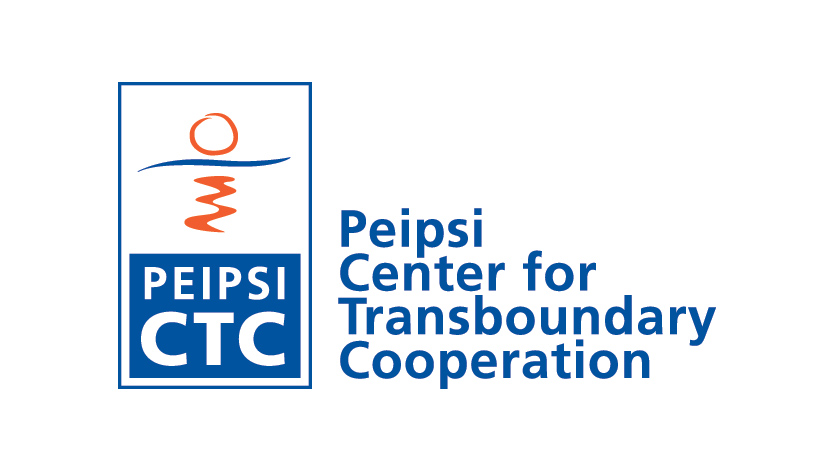Financial support: European Commission; INSTITUTIONAL BUILDING PARTNERSHIP PROGRAMME
Time: September 2010-February 2012
Estonian coordinator: Margit Säre, margit@ctc.ee, tel +3725088409
Partners:
NGO "Lake Peipsi Project, Pskov" (Lead partner)
Pskov City
Hanseatic City of Rostock
Peipsi Center for Transboundary Cooperation
Indirectly: 12 Russian Hanseatic cities - Belozersk, Ivangorod, Kaliningrad, Kingisepp, Novgorod, Pskov, Smolensk, Tikhvin, Torzhok, Totma, Tver and Velikiy Ustyug
Lithuania: the City of Kaunas; Estonia: the Cities of Tartu and Viljandi.
Summary:
The project aims to establish a practical and dynamic dialogue platform between the Russian Hanseatic cities and European Hanseatic cities (mainly Estonian, German, Lithuanian), Hansa-related institutions and pro-city cultural networks for capacity and partnership building, exchange of information, experiences and good practices.
The project tries to bring forward European pro-city cultural networks including the largest one – the Hansa – as a common open space able to effectively link the cultural potential of the EU and Russian Hanseatic Cities, to develop cultural exchange and to promote cultural and linguistic diversity;
Main activities
- International Steering Committe meetings.
- International conference on pro-city cultural management, in Pskov: December 2011.
The aim of the conference is to officially open and to discuss the project; to present and to discuss modern trends in European pro-city cultural strategies and especially those gained due to joint initiatives under territorial cooperation and networking programmes like INTERREG, ESPON, URBACT, etc.; to consider existing pro-city cultural networks and their benefits; to analyze case-studies of pro-city cultural promotion and branding; to establish a dialogue platform for exchange of ideas, good practices and increase of contacts between European and Russian Hanseatic communities. - Practical seminar “Russian Hansa”; in Pskov, March 2011.
Seminar is targeted to culture-related decision- & policy makers, historians and researchers; representatives of Ministry of Culture of RF; cultural managers from the Hanseatic City of Rostock ; European representatives of the Hansa League of the New Times; Hansa-related specialists from Baltic Hanseatic cities (mostly from Tart und Viljandi, Estonia).
Seminar aims to bring forward European pro-city cultural networks including the Hansa as a common space effectively linking the cultural potential of the EU and Russian Hanseatic cities; to prepare the SWOT- analysis reflecting the outlook for the Russian Hansa European integration; to present and to consider the existing trends and role of Russian Hanseatic cities in the Hansa of the New Times paying special attention to Novgorod experience; to mark necessary steps to be done for the Russian Hansa reinforcement and promotion etc. - Study Trip of culture managers of Russian Hanseatic Cities and Rostock Hanseatic City to the XXXI Hansa Days in Kaunas, Lithuania; May 2011.
Aim of the trip: to get practical information and ideas on-the-spot about the Hansa Festival, format of its conducting, forms of cultural presentations and artistic performances, etc.; to establish cooperative contacts with the participating cities/countries; hence to form clear vision how the Russian Hansa can be better represented in the European Hanseatic community; to get inspired with the last trends and innovative ideas used by different culture-related actors during the event; etc. - Summer School for culture managers; Pskov region, August 2011
Participants: culture-related managers from legislative and executive authorities of Russian Hansa cities; cultural managers from the Hanseatic City of Rostock and its cultural associates; European representatives of the Hansa League of the New Times; Hansa-related specialists from Estonian Hanseatic cities.
Summers school discusses the questions of pro-city cultural management and practical steps of integration with European Hanseatic community and cultural networks in detail; development a strategy of the Russian Hansa reinforcement and promotion etc. - Study Trip of Pskov Culture Managers to Hanseatic Cities of Tartu and Viljandi, June 2011.
Aim of the trip is to get practical information on-the-spot about work on Hansa Festivals arrangement , format of their conducting, choice of places, forms of artistic performances and culture-related presentations; to establish cooperative links with Estonian cultural institutions / operators; to get ideas to be used during the upcoming “Pskov Hansa” Festival. - Closing workshop, The City of Pskov, Decemeber 2011
Additionally the following documents will be developed:
- Development of the Pskov Hanseatic Brand
Within the activity the Pskov Hanseatic brand exposing the Hanseatic past and European roots of the city will be developed. The brand will allow the city to be adequately promoted abroad within the Hansa festivals, other European cultural networks and programs.
- Development of the Pskov Hanseatic “Road Map”
The ”Road Map”, based on the best European experience in cities' cultural promotion, will serve as strategic orientation and direction for Pskov's culture-related policy-makers and managers to cultural development towards European cultural integration.

